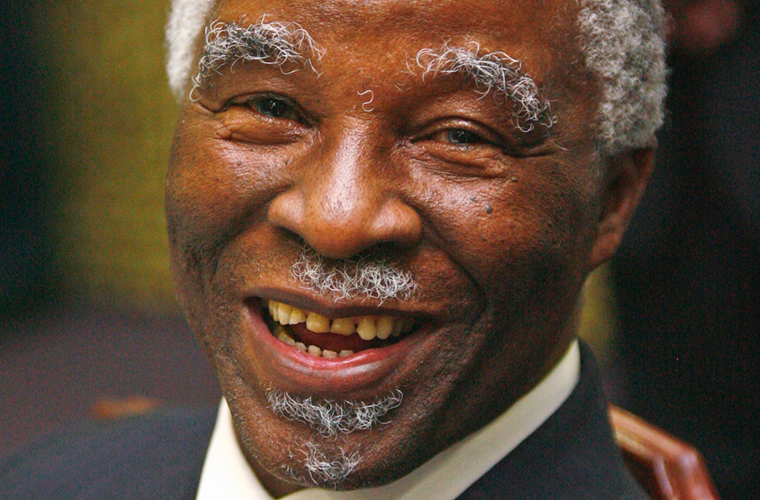Thabo Mbeki, (born June 18, 1942, Idutywa, Transkei [now South Africa]), a politician who served as the president of South Africa (1999–2008).
Mbeki was early exposed to politics by his father, a longtime leader in the Eastern Cape African National Congress (ANC), an organization dedicated to the elimination of apartheid in South Africa, who was later imprisoned (1964–87) with Nelson Mandela. The younger Mbeki attended schools in Transkei, including the well-known Lovedale secondary school in Alice, and in 1956 joined the ANC Youth League. Three years later he led a student strike at Lovedale that resulted in his expulsion. Mbeki continued his studies at home and remained active in the ANC after it was banned in South Africa in 1960. In 1962 he left South Africa illegally and enrolled at the University of Sussex in Brighton, England, from which he graduated with an M.A. in economics in 1966.
In the late 1960s, Mbeki began moving rapidly up the ANC hierarchy. He worked for the ANC in London (1967–70) and underwent military training in the Soviet Union (1971). In 1971 he served in Lusaka, Zambia, as assistant secretary to its Revolutionary Council, becoming the youngest member of the national executive (1975) and political secretary to President Oliver Tambo (1978). During the 1970s Mbeki undertook missions for the ANC in Botswana, Swaziland, and Nigeria in order to work with black youth who had left South Africa. He later played a key role in the discussions that led to negotiations between South African President F.W. de Klerk and the ANC in 1990. These talks, in which Mbeki was also involved, led to the adoption of a new interim constitution that marked the end of apartheid. In 1990 the ban against the ANC was lifted, and Mbeki returned to South Africa. Three years later he was elected to succeed the ailing Tambo as ANC chairman.
In 1994 Mbeki was appointed South Africa’s deputy president by President Mandela and played a major role in the day-to-day operations of the country’s first multiracial government. Mandela retired from politics in 1999, and, after the ANC’s victory in nationwide elections in June, Mbeki, who had become head of the ANC in 1997, was named the president.
Mbeki’s administration focused on the continuing transition from an apartheid state, halting the soaring crime rate, and combating the spread of AIDS in Africa (though he was subject to criticism for questioning whether HIV caused AIDS). He also led efforts to increase foreign investment in Africa and to encourage debt relief for African countries. Mbeki secured a second term as president of the ANC in 2002. In South Africa’s 2004 elections the ANC won nearly 70 percent of the vote, and Mbeki was elected to a second term as president of the country. In 2007 he lost his bid for a third term as head of the ANC to Jacob Zuma in what was one of the most contentious leadership battles in the party’s history. Amid charges of corruption, Zuma had been dismissed by Mbeki from his position as deputy president of the country in 2005. Despite repeated allegations of wrongdoing—which his supporters claimed were politically motivated—Zuma remained a popular figure within the ANC and was selected over Mbeki to be party president.
Following an allegation by a High Court judge that there had been political interference in Zuma’s prosecution on corruption charges, on September 20, 2008, Mbeki was asked by the ANC to resign from the South African presidency, which he agreed to do once the relevant constitutional requirements had been fulfilled. On September 25 he was succeeded by Kgalema Motlanthe, who was selected by the National Assembly to serve as interim president until elections could be held in 2009.

